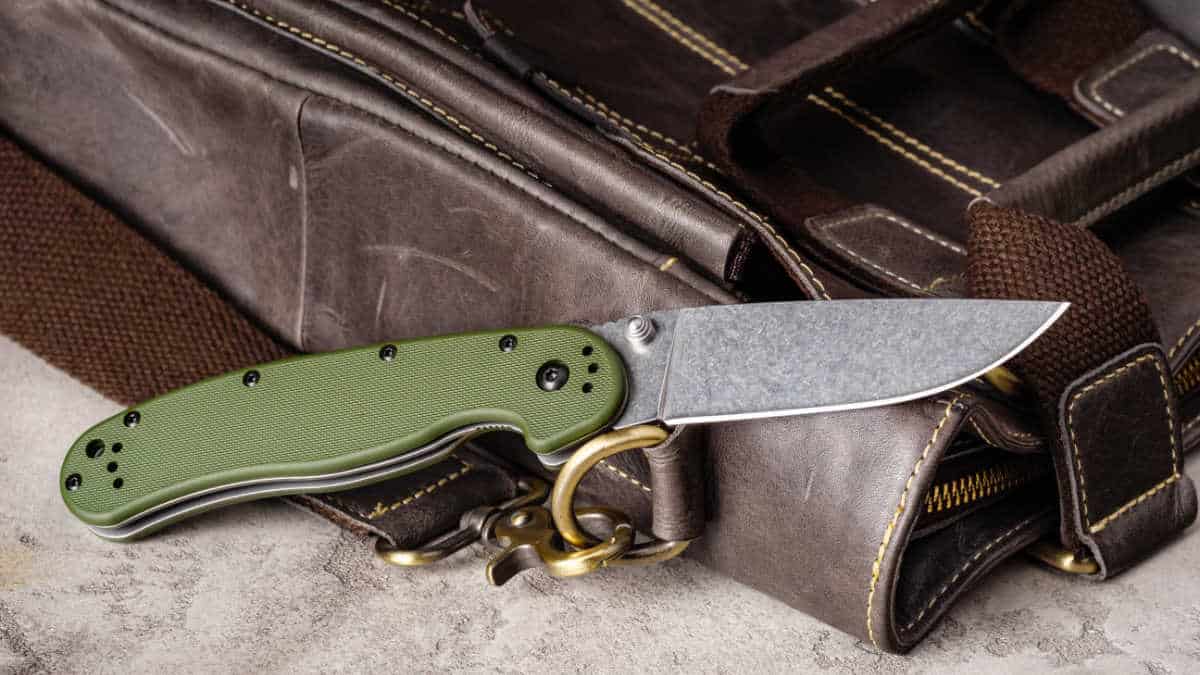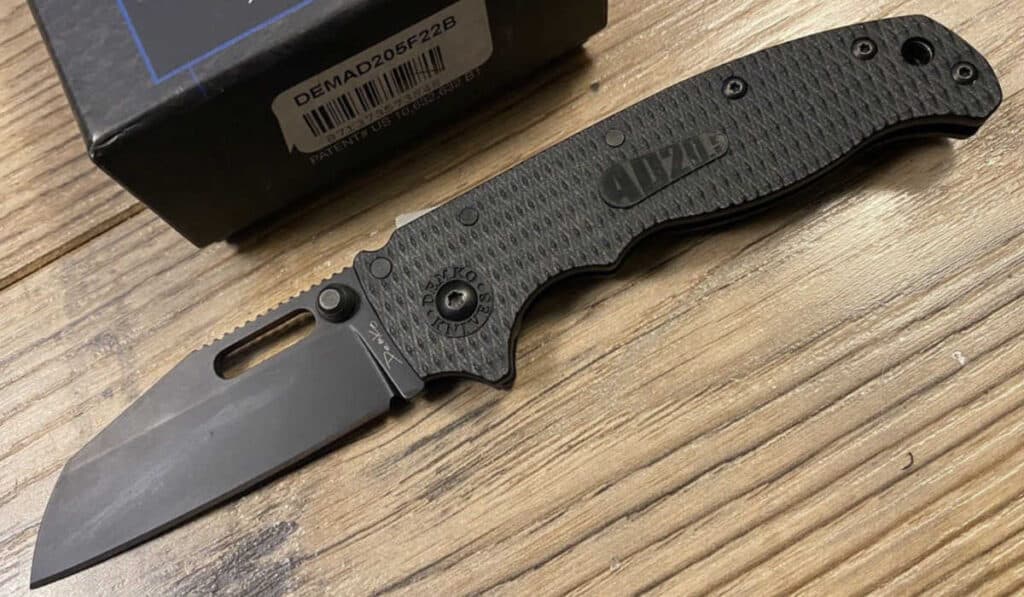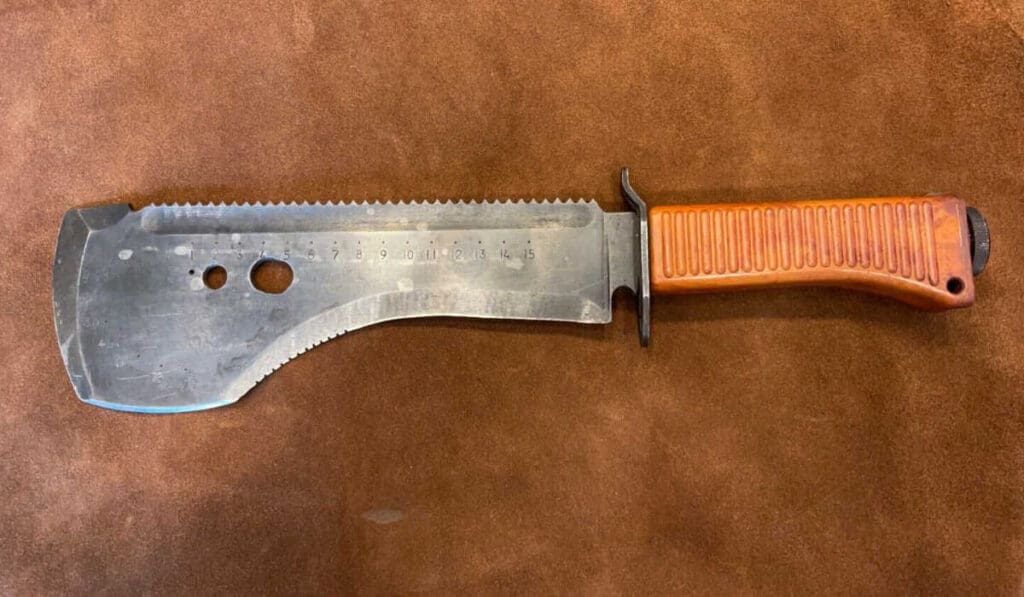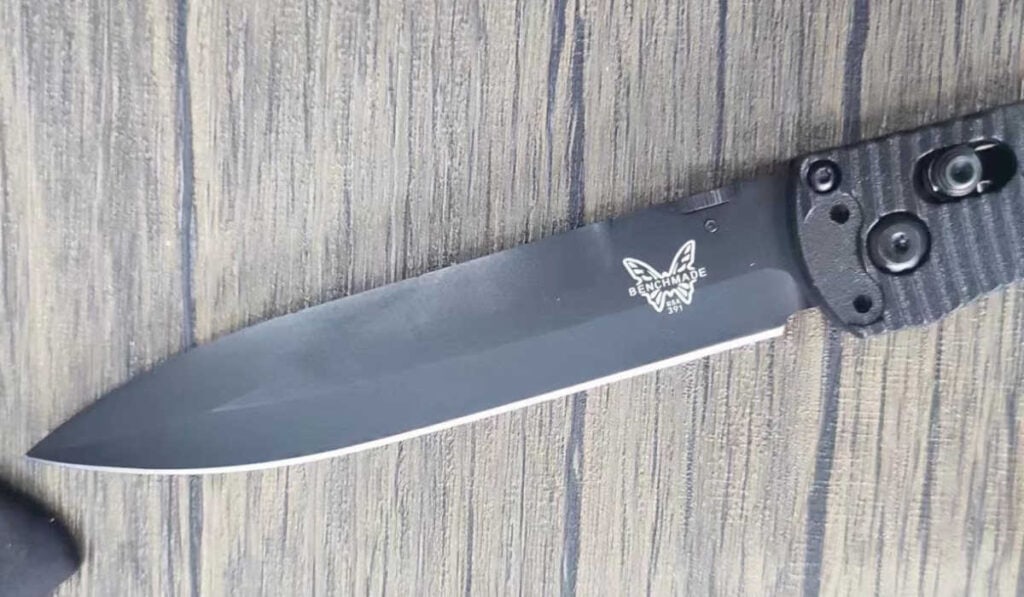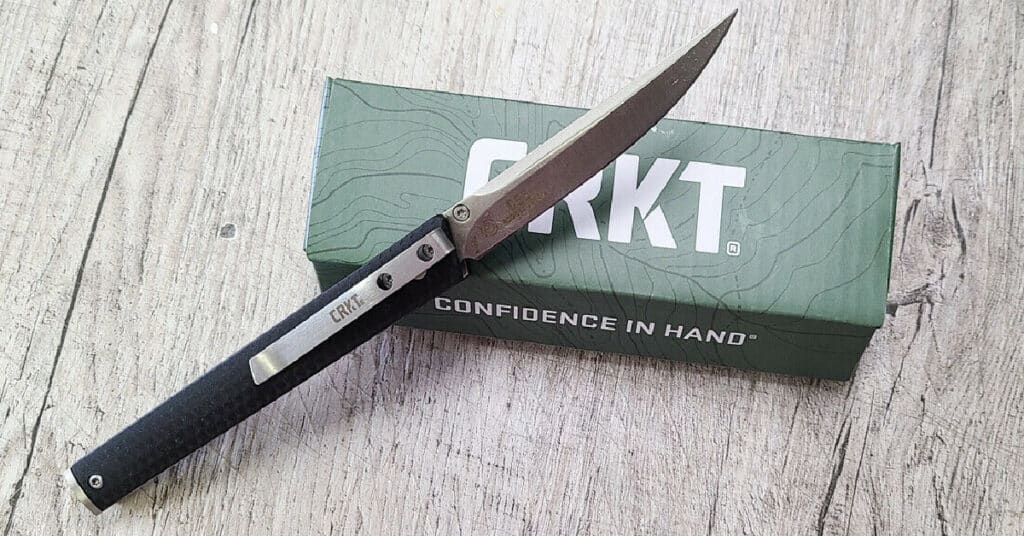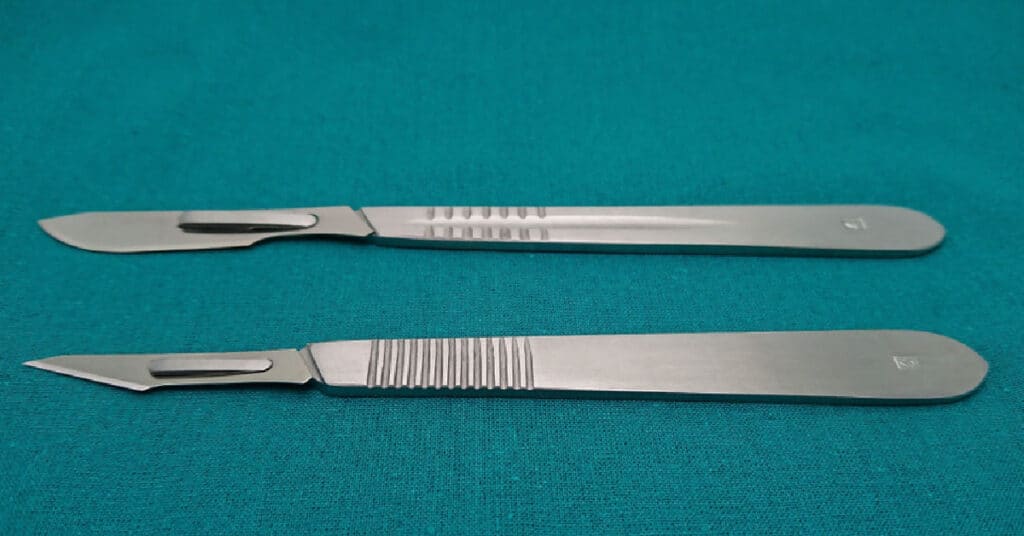Last updated on July 22nd, 2023 at 12:34 am
As an Amazon Associate I earn from qualifying purchases.
At A Glance
Whether or not you can take a knife to work depends on a complex array of knife laws that vary from state to state in the United States, workplace policies, and possibly even federal regulations if you’re traveling between states or internationally. The legality hinges on factors such as knife type, blade length, and carry laws (whether you carry the knife openly or concealed). Alongside these legal considerations, the nature of your work and the specific tools it requires also matter. Knives come in various types including Folding Knives, Multi-Tools, and Fixed-Blade Knives, each suited to different tasks and subject to different regulations. Airports, planes, military bases, courthouses, and schools are among places where carrying knives is strictly prohibited. Therefore, before deciding to take a knife to work, ensure you are thoroughly familiar with your state’s knife laws, federal laws, workplace policies, and any travel-related rules if applicable.
Navigating the rules and regulations surrounding carrying a knife to work can be a complex issue. Various factors, such as the type of workplace, knife size and blade length, and the individual’s specific job, can play a part in determining whether it is acceptable or not to bring a knife to work. While some workplaces may have specific policies in place prohibiting weapons, others could be more lenient, especially if the knife serves a practical purpose on the job.
It is essential to understand your employer’s guidelines, and, if necessary, to seek clarification on their policy regarding knives. In some cases, individuals may be allowed to carry a knife at work due to religious affiliations or cultural reasons. However, it’s crucial to communicate this reasoning with the appropriate personnel to avoid misunderstandings or conflicts within the workplace.
Keep in mind that local and national laws on knife possession and carry also dictate what may be considered acceptable. There may be restrictions on the maximum blade length or the type of knife that can be legally carried in public spaces or transported in vehicles. It is essential to familiarize oneself with these regulations to ensure compliance both within and outside the workplace.
Knife Laws and Regulations
In the United States, knife laws are a complex patchwork that varies from one state to another and sometimes even from town to town. While there is a federal law regarding switchblade knives, most knife regulations are determined by individual states. This means that the legality of carrying or owning a knife for work purposes will depend on the specific laws within your jurisdiction.
It is crucial to understand both the carry laws and ownership laws for knives in your state. Carry laws dictate which types of knives are allowed to be carried on your person, while ownership laws determine which types of knives can be legally possessed. This distinction is important, as some states may allow the ownership of certain knives, but not the carrying of those same knives.
In general, states tend to regulate knives based on factors such as blade length, type of knife, and the location where the knife is carried. For example, some states have restrictions on carrying knives with blades over a certain length or may prohibit specific types of knives such as automatic knives or throwing stars entirely. It is essential to research your state’s knife laws to ensure compliance with these regulations.
Work environments, such as office buildings or construction sites, may also have their own policies regarding the possession or use of knives on their premises. It is advisable to review your workplace’s guidelines in addition to state laws to be aware of any additional restrictions or requirements.
Lastly, it is worth noting that federal law has some jurisdiction over individuals traveling between states or internationally, which may come into play if you intend to bring a knife to work across state lines. In such cases, familiarizing oneself with federal knife law becomes necessary to avoid potential legal risks.
In summary, navigating knife laws and regulations for work requires a thorough understanding of not just state laws but also federal laws and workplace policies. By familiarizing yourself with these guidelines and ensuring compliance, you can confidently and legally carry or own a knife for work purposes.
Restrictions on Carrying Knives
Carrying knives in various settings is subject to different legal regulations depending on the location and type of knife involved. In this section, we will discuss the restrictions on carrying knives, specifically focusing on concealed carry and open carry.
Concealed Carry
In many areas, concealed carry of certain types of knives is subject to restrictions. The Switchblade Knife Act of 1958 and its 2009 amendment serve as the primary federal law in the United States regarding knife carrying. Nonetheless, individual states may have their own regulations to consider when carrying a concealed knife.
For example, in Alaska, the law imposes some limitations on citizens carrying concealed blades, but not on common types such as pocket knives. Meanwhile, Massachusetts prohibits the carrying of knives with blades longer than two and a half inches in public without a valid permit, and specifically bans concealed carry of switchblades or other automatic-opening knives. Always consult your local laws and regulations when considering concealed carry.
Open Carry
Open carry of knives is generally subject to fewer regulations than concealed carry, but it is still important to be aware of any local laws that may apply. Laws surrounding open carry often center around the blade length and categorization of the knife, rather than solely on the method of carrying the weapon.
While certain types of knives, such as pocket knives, are commonly permitted for open carry, it is crucial to familiarize yourself with the ownership and carry laws specific to your location. Some states have no restrictions on open carry, whereas others may impose limitations on specific types of knives or blade lengths.
Keep in mind that individual workplaces may also have their own policies regarding the carrying of knives or other potential weapons. It is always a good idea to review your workplace’s guidelines to ensure that you remain in compliance with their respective rules.
Traveling with Knives
Traveling with knives can be a challenging task, especially if you need to take a knife to work. It is essential to be aware of the laws and regulations concerning traveling with knives to avoid any legal issues.
In the United States, laws regarding knives can vary from state to state, making it difficult to navigate and understand the rules. It’s essential to research your destination’s local laws to avoid potential problems.
When it comes to air travel, strict regulations apply to knives due to security concerns. According to the Transportation Security Administration (TSA), all types of knives, except for plastic knives and round-bladed butter knives, are banned in carry-on bags. However, you can pack your knife in checked luggage without any restrictions, as long as it is sheathed and secured to prevent injury to baggage handlers or inspectors.
In addition to air travel, you may also need to transport your knife within your local community. In this case, it is crucial to follow appropriate safety measures. Pack your knife safely in a secure pouch or sheath, and carry it in a bag or briefcase rather than on your person. Always keep your knife out of sight and never use it in public places unless necessary for your job.
For those traveling internationally, you should be aware of the regulations regarding carrying knives in different countries. In the United Kingdom, for example, Civil Aviation Authority (CAA) rules allow penknives with blades shorter than 6 cm (2.4 inches) in carry-on luggage, although multi-tools are banned.
Remember that being cautious and knowledgeable about traveling with knives is crucial to avoid potential legal issues and ensure that you can take your knife to work safely and conveniently. Always check the rules and regulations for your specific destination and mode of transportation, and follow recommended safety measures to transport your knife responsibly.
Legal Advice and Resources
Legal advice is vital when determining whether you can take a knife to work, as knife laws vary from state to state. In the United States, there are no federal laws regulating weapons in private workplaces, but employers may establish their own policies regarding employees carrying knives. Additionally, some states enact specific laws regarding weapons at work.
If you need assistance finding qualified legal advice, USAGov offers resources for finding free or low-cost legal help, depending on your situation. It’s crucial to consult with a legal professional who understands the relevant state laws, as they can answer more specific questions about limitations and exceptions, such as carrying a knife for religious reasons like a Sikh employee might do.
Keep in mind that carrying a knife to work can open up the possibility of potential legal consequences, as well as consequences from your employer. Therefore, it’s important to consider whether you genuinely need to bring a knife to work and weigh that against the possible risks.
Related Topics
When discussing the topic of bringing a knife to work, it is important to consider the types of knives and their specific uses, as well as the legal and safety implications surrounding these tools. In some workplace environments, such as in the food service industry, knives are a necessary tool for completing tasks efficiently. In other lines of work, however, the use of a knife may not be as relevant, and the idea of bringing one to the office could raise concerns about personal safety and legality.
In comparison, the discussion of bringing guns to the workplace holds its own set of regulations and concerns. Employers must comply with local and federal gun laws, as well as consider employee safety and comfort. If you’re considering bringing a firearm to work, it’s essential to research the appropriate laws and company policies.
Employers should implement knife safety training and promote proper practices for employees who need to use knives at work. This may include procedures on sharpening, changing, and disposing of blades and maintaining awareness of surrounding hazards.
In conclusion, while knives and guns can be considered tools in certain workplace settings, it is essential to prioritize safety and legal compliance when using these instruments at work.
Do Sheepsfoot Blades Have A Purpose? (Cuz They’re Ugly…)
Spetsnaz Machetes – Blades Of The Russian Special Forces
What Is The Actual Purpose Of A Spear Point Knife Blade?
CRKT CEO Review – Coolest, Most Worthless Knife Ever?
How Sharp Is A Scalpel? (Is It Sharper Than A Razor?)
Can You Shave With A Knife? (Yes, Here’s How)
As an Amazon Associate I earn from qualifying purchases.

